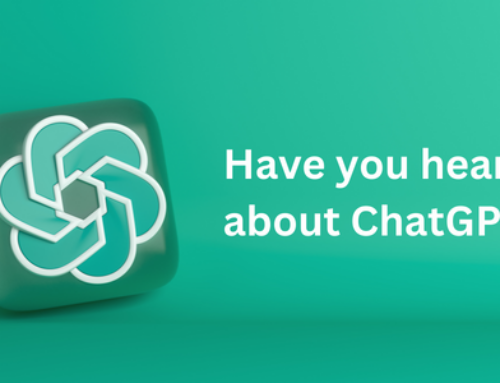
Do you remember the first time you used ChatGPT? Or what you initially thought of it? For some people, it was a groundbreaking moment, the advent of a new technology that would change how we work, learn and research. For others, it was tech that has been in the works for ages, only now released to the public in a manner like this. Whether or not you saw it coming, ChatGPT is undeniably an impactful piece of software – and it’s already changing the landscape of marketing in the macro.
For a good few months, ChatGPT was top of the game – in fact, it was the only generative AI chatbot like it in the game, gaining over 57 million active users in its first month of being live. But with all new technologies, monopolies don’t last for very long, and for a company with the size and resources of Google, a response to ChatGPT was entirely expected by the internet. About four months after ChatGPT was released, Google unveiled “Bard”.
What is Google Bard?
If it wasn’t already obvious, Bard is Google’s “equivalent” to ChatGPT. It’s a conversational language model – to normal people, a highly advanced AI-powered chatbot that can not only respond to you conversationally, but generate articles, social media captions, stories, ideas, plans, advertising material, really anything written.
Bard’s interface looks and feels very similar to other Google products, and operates the same way ChatGPT does, with the user sending a prompt/message and the assistant generating a response based on the preceding convo. There are some differences to ChatGPT though, both in functionality and overall performance.
Google Bard’s features
For a start, there’s something that feels a bit crude about Bard, and in my experience, I can’t rely on it to generate consistently accurate responses – nor do I think you should. Sure, the multiple “drafts” feature allows for more variety in the generated content without you having to keep re-entering your prompt, but I’ve seen far more erroneous and tweet-worthy responses from Bard than I have from ChatGPT. In fact, in Google’s own demo of Bard, the AI presented a categorically false piece of info about black holes as fact, something that’s known as a “hallucination” in the generative AI world. That’s not to say ChatGPT doesn’t ever make up facts sometimes when it doesn’t have info, but I’ve seen a lot more incidents of this with Bard, and it’s not a good look for a product release.
To add to this, there’s even been allegations of Bard being trained on responses from ChatGPT, which is a good enough reason in and of itself to just stick with ChatGPT.
Nevertheless, Bards impact on the world of content marketing and SEO will be big. Some marketers may prefer something about Bard’s writing style to ChatGPT, or have more success with prompt engineering for their desired type of content. If nothing else, just the fact that there’s another generative language model out in the public domain means that we should expect AI-written content to be on the rise.
How will Bard affect search engine optimisation?
As with any big change in the world of content marketing, it’s normal to feel daunted about how Bard will impact your current SEO strategy, and whether you’ll have to up your game to compete. And if you’re here for the short answer, your best bet to keep seeing results long term is to take advantage of both human and AI content, while focusing on quality and value to the reader. But let’s delve in deeper to how Bard (and other generative AIs) will affect search engine optimisation.
First, if the days of pumping out bland, unoriginal blog posts saturated with keywords weren’t already over, they definitely are now. Both Google’s Bard and OpenAI’s ChatGPT have been trained on the vast volumes of blog content out there, and are very good at replicating and reproducing similar content that feels new, but provides no new ideas. It’d be naive not to expect businesses to take advantage of Bard to generate more of this type of content – so now you have more competition to differentiate yourself from.
Building trust with your audience and connecting with them personally is now more important than ever. To stand out from the tidal wave of repetitive, uncreative AI-written content that we’re already experiencing, you need to be providing either new ideas and info, or providing existing ideas in a creative or unique way to keep reader engagement.
Instead of relying solely on keyword density, focus on delivering unique and valuable insights. Think about providing fresh perspectives, sharing innovative approaches, or presenting existing ideas in a creative and engaging manner. Give your audience something they haven’t seen before or present it in a way that makes them go, “Wow, I never thought of it like that!” By offering authentic, original, and thought-provoking content, you’ll rise above the sea of mediocrity and captivate your readers.
Another thing to consider is that for people looking to learn and research about new topics, Bard and ChatGPT provide in many cases an equal or even better solution than a Google search. You don’t have to click through multiple results to find what you want, with every website bombarding you with cookie popups and newsletter prompts. You get your answer straight away, from a chatbot that is willing and able to explain the topic in many different styles, tones and angles.
What this means is that you should prioritise packing your content with as much value and actionable advice, in a readable format, in a way that is unique to your brand! You want website visitors to come to you because they believe to be an authority on your topic, or have creative ideas that no one else does, or have a unique way of explaining things they can’t find elsewhere – otherwise, they’ll just go to Bard/ChatGPT.
The bottom line is this: technology is always going to evolve, and we’re on the tipping point of huge societal and work changes thanks to AI like Bard and ChatGPT. Like with many technological turning points before, AI is going to make the average redundant. If you’re producing content that is just “okay”, and falls in the bottom 90% of content, expect your results to dwindle!
This article has been pretty pessimistic in nature, so here’s something to be positive about: AI will make generic content more accessible than it’s ever been, so if you’re putting out content that is genuinely unique, engaging and cannot be found anywhere else, expect visitors to flock to your website. There’s no reason you can’t make AI a positive thing for your SEO, especially if you’re using it to cut down on your time doing generic and uninspired work so you can focus on differentiating yourself!
Need a little help navigating SEO for your organisation? Get in touch with us today!








